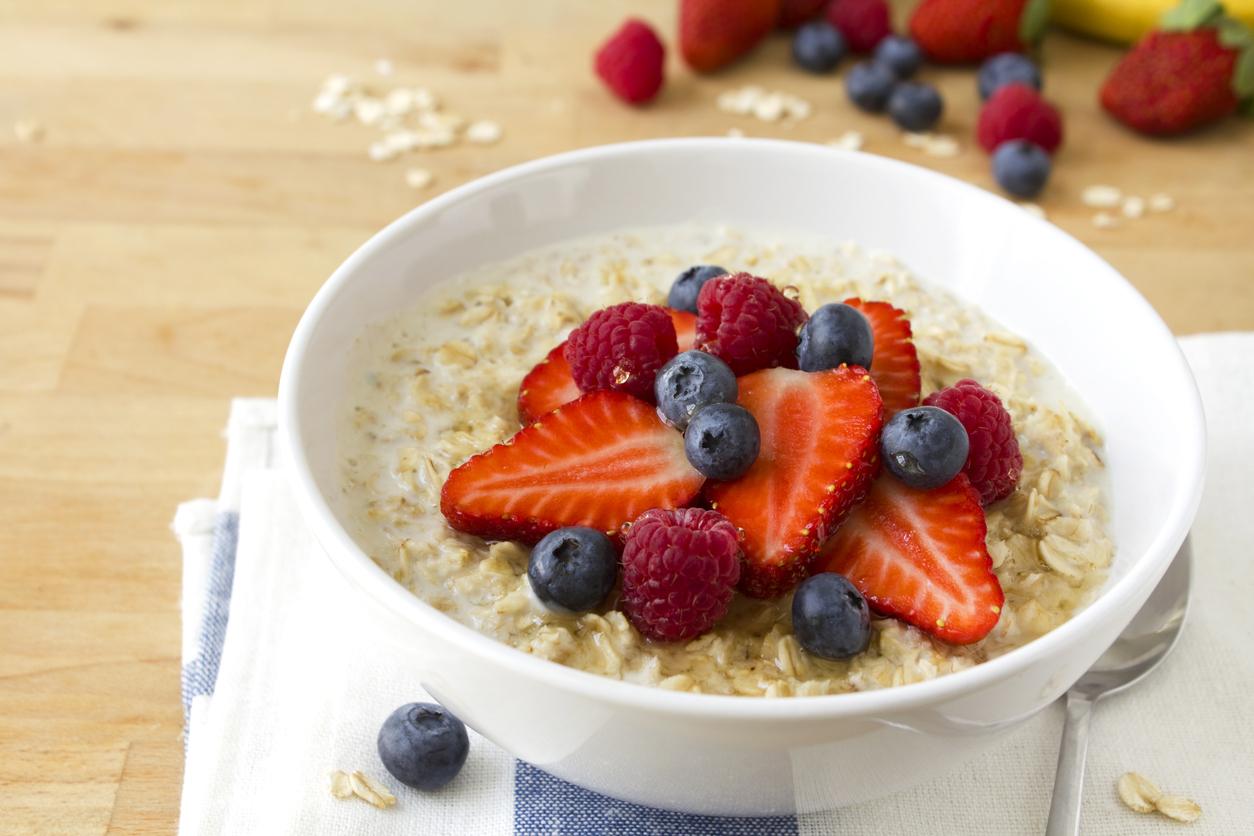Instant porridge may not be as healthy as advertised
Porridge is simple, nutritious and delicious, but could it also be sabotaging your healthy eating intentions?

On a frosty, dark morning, there are few more comforting ways to start the day than with a big bowl of hot porridge.
Humble oats have had a renaissance in the last few years and are now the breakfast du jour for many a trendy foodie - lumpy grey mush is a thing of the past and creamy oats topped with everything from caramelised banana to orange blossom honey is on the menu.
But it could be that your morning bowl of oats isn’t quite as nutritious as you might have thought - if you grab a sachet or pot of instant flavoured porridge every day, you may not have much reason to feel virtuous at all.
Instant porridges are often packed with added sugar and salt.
One pot of golden syrup flavour Quaker Oat So Simple porridge, for example, contains 16.8g (over four teaspoons!) of sugar which equates to just under a fifth of the contents of the pot
British adults are advised to eat no more than 30g of sugar a day, so as delicious as a golden syrupy start may be, you’d be consuming more than half the recommended daily amount before even brushing your teeth (unless you’re one of those people who brushes before breakfast but still).
Quaker Oats golden syrup porridge is one of the worst offenders at 29.5g of sugar per 100g, but they’re by no means alone - here are some of the others to consume cautiously if you’re watching your sugar intake:
- MOMA cranberry and raisin porridge - 27.1g sugar per 100g
- Kellogg’s Coco Pops porridge - 20g sugar per 100g
- Perkier gluten free golden syrup porridge - 19g sugar per 100g
- Ready Brek chocolate porridge - 17g sugar per 100g
- Oomf! Golden syrup protein porridge oats - 14.4g sugar per 100g
According to the NHS, most British adults and children consume too much sugar, which can lead to weight gain, type 2 diabetes and heart disease.
Six healthy breakfast recipes to try
Show all 6Make a bowlful right though, and porridge is undoubtedly one of the healthiest ways to start the day: unprocessed whole grain oats are high in fibre and break down slowly, providing sustained energy. They’re also a natural source of energising vitamins and minerals including magnesium, vitamin B1 and vitamin B6.
Oats are great for your heart health: avenanthramides help clear plaque from your arteries and beta-glucan naturally lowers your cholesterol. “They do this by helping to remove the cholesterol from the digestive system (it would otherwise end up in the bloodstream),” SuperfoodUK nutritionist Shona Wilkinson explained to The Independent.
“Oatmeal is also a great pick if you’re watching your weight thanks to its combination of fibre and water, which causes it to expand in your gut like a sponge so it keeps you feeling full for hours,” nutritionist Karen Ansel told Thrillist.
The trouble is, few of us have time to stand over the stove stirring our oats every morning and instant porridges do all the hard work for us, making them a very appealing option.
However, sugar’s current position as public enemy number one has resulted in healthier, less sugary instant porridges popping up on the scene - Rude Health’s almond butter with sea salt porridge, for example, contains just 1.8g of sugar per 50g pot (3.7g per 100g).
Another way to manage your sugar intake is to start with plain porridge and jazz it up yourself: try Nairn’s gluten free instant porridge oats (1.1g of sugar per 100g) and top with cinnamon and sliced banana to add flavour without lots of refined sugar.
Wilkinson is staunchly against adding sugar to your porridge: “If you want to sweeten it somehow, try adding a small amount of Manuka honey which will provide flavour and sweetness without making it unhealthy.”
She also suggests topping your oats with some nuts to add protein and thus keep you fuller longer.
So oats are a good breakfast choice, you just need to be wary of instant pots: “They work out incredibly expensive but usually have lots of sugar added,” Wilkinson sums up. “This defeats the object of eating them.”
Subscribe to Independent Premium to bookmark this article
Want to bookmark your favourite articles and stories to read or reference later? Start your Independent Premium subscription today.

Join our commenting forum
Join thought-provoking conversations, follow other Independent readers and see their replies